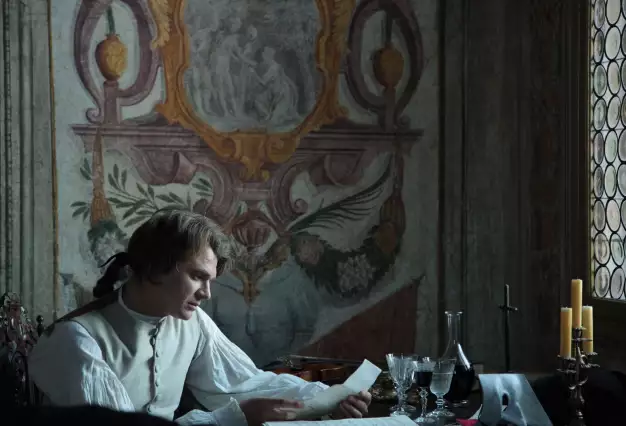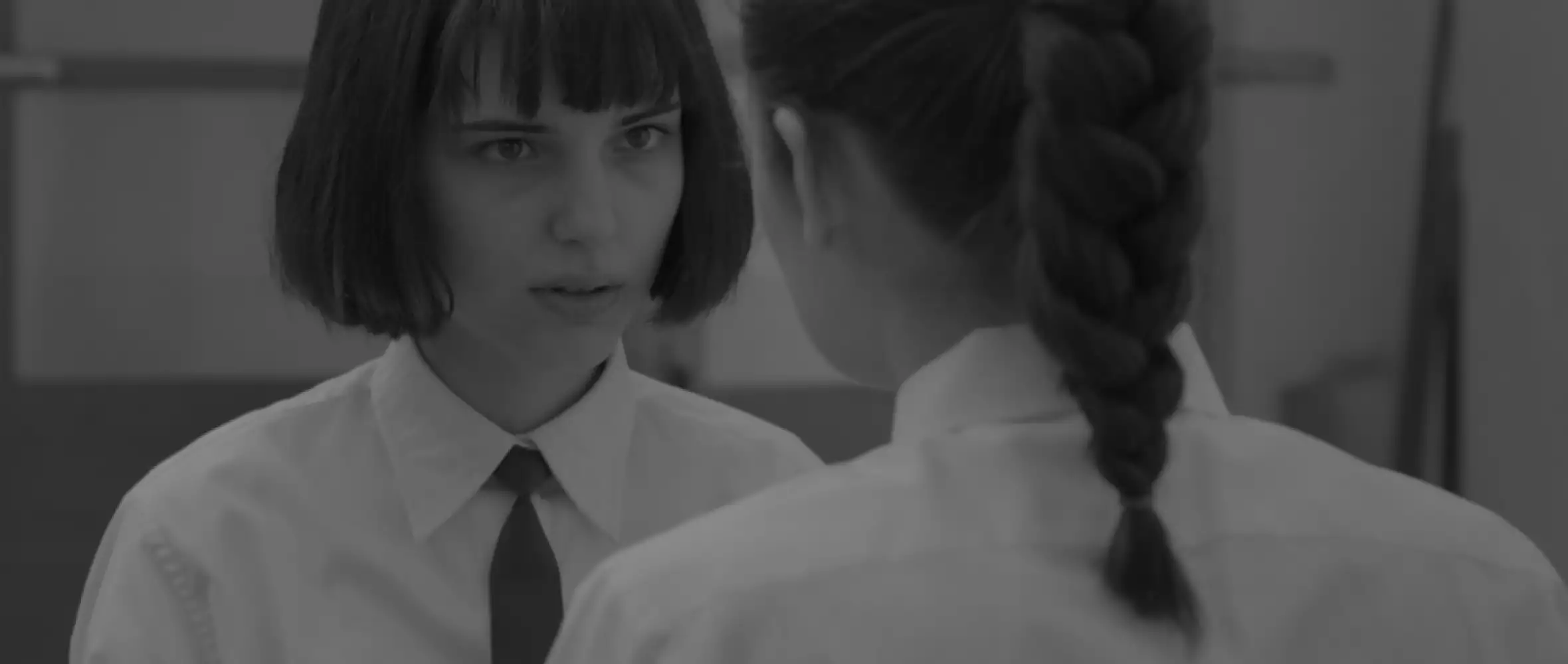
15 March 2016
Over the Edge
Interview with the directors Tomáš Weinreb and Petr Kazda
Over the Edge
Interview with the directors Tomáš Weinreb and Petr Kazda

Based on the life of Olga Hepnarová, who on 10 July, 1973 drove a rented truck into a group of people waiting for a tram, killing eight of them. Before the murder, she sent a letter to two newspapers explaining her action as revenge for all the hatred against her by her family and the world. She was found to be sane and sentenced to death. The execution took place on 12 March, 1975 in the Pankrác Prison in Prague. She was the last woman executed in Czechoslovakia.
Interview by Denisa Štrbová for Czech Film Magazine / Spring 2016
You have chosen a very controversial subject for your first film. What struggles did you encounter during development and production? How did you approach potential partners with such a subject?
P: Most often we had to fight against mistrust. We continually had to defend ourselves and explain that we didn’t want to make a film about a mass murderer, but an existential drama. We had to repeat again and again that we were not after sensationalism, we were not going to glorify the murderer in our film, and that our intention was just to show a human being and her dramatic fate. Even our idea about the visual concept of the film, with black-and-white and more static images, was against us and we didn’t get support from any television stations. Our uncompromising standpoint in how the film should look, together with mistrust of a debut so artistic, so producer-oriented, created quite a hopeless situation. We often heard sentences like: “You will never make this film.”
But, as the film was finally made, you also must have had some supporters.
P: Yes, I must say that the partners who supported the film from the early stage of development, e.g. Barrandov, the State Cinematography Fund, ACE, later also SPOON, Samuelson, and the producer Vojtěch Frič, trusted us and held on till the end. Abroad, it was Media Brigade and especially the Polish Film Institute who helped us. Later we got money for the screenplay from the Slovak Audiovisual Fund. Then the second stage started with endless debates about the production phase, economical spending, preparations, technical issues and dates. The shooting was constantly being delayed. Tomáš and I were exhausted and tired of everything. But “A cracked angel still unbroken” (a quote from OH). If we hadn’t got the additional money and support from Poland’s Odra Film Fund and the money we had to spend by the end of the year I don’t know how it would have all ended up.
You had been working on the script for five years, largely inspired by the book by Roman Cílek. Do you agree with his interpretation of the events? Have you discovered anything new in the case?
T: Roman Cílek’s book helped us a lot. It literally kicked us off, as we didn’t know enough about the case in the beginning and Roman’s book is a great work of nonfiction literature. We ourselves talked to many people who encountered Olga, both in a fateful way or just casually, and we were always trying to get something for our film, not only for the script: an emotion, a memory, a fragment remaining in the minds of these people after so many years. Čestmír Kozar, the author of the website Pantharei, dedicated to the case of OH, helped us a lot, too. He knows the story of OH very well. But no, we were not looking for anything sensational, and we didn’t find it either.
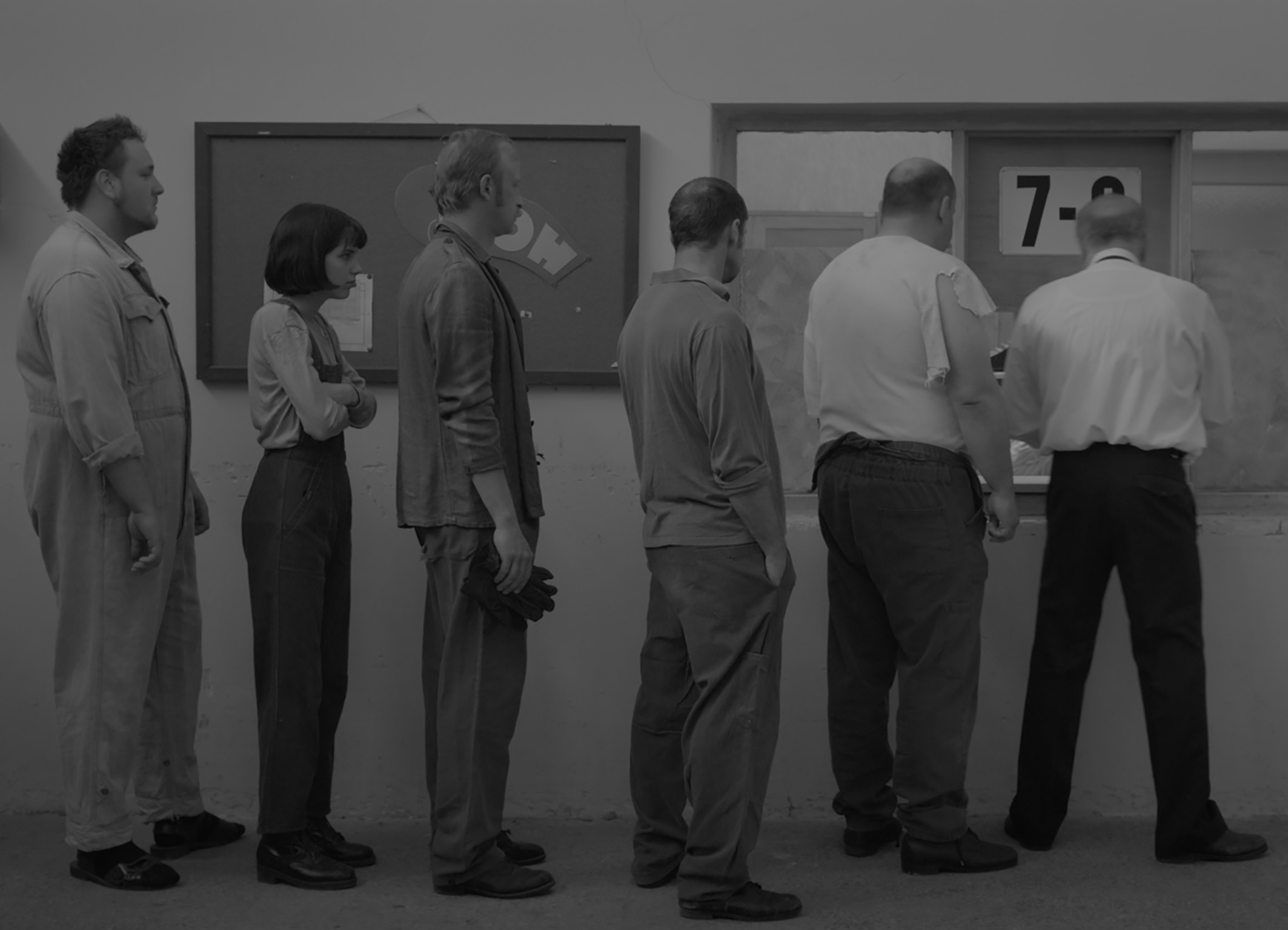
You dedicated a lot of attention to Olga’s homosexual orientation in your film. Do you think it played a key role in her frustration with life and feeling of isolation from society?
P: It was only one of the factors. Olga felt different from others, and both the people who encountered her in the 1970s and the psychologists agree she really was different. She shunned people, always looked down at the ground, she was very timid. For me, one of the key reasons is the way people can behave toward each other. The feeling of somebody who calls himself a “Prügelknabe” (scapegoat) doesn’t come just like that, from nothing; it can be a consequence of all kinds of very small things and slights forming one’s character. Olga was taking the injustice against her person very hard and had to suffer it for a very long time, even since her childhood. Her homosexual orientation, the fact that she was a member of, in those times, an even more abject minority and she couldn’t openly manifest her orientation, only strengthened that feeling. She unfortunately hadn’t found fulfilment in this area either. She hadn’t succeeded in finding a partner who would provide her with sexual satisfaction, and this further contributed to the stress she was constantly feeling.
What were your requirements for the lead performer? Did the Polish actress Michalina Olszańska fulfil them? How did you discover her?
P: One of the main criteria was at least some resemblance to Olga Hepnarova and then of course acting qualities. Olga is present in 99% of the scenes, so we knew that for such a demanding and crucial role throughout the whole film we had to cast an actress with charisma and great natural flexibility. Michalina is a very smart actress. She was completely unknown to us. When she came to the casting in Wroclaw dressed like Olga Hepnarová in the 1970s, she immediately made a great impression on us. We liked the way she moved, her looks, the ambiguity in her eyes. She took the challenge and was not ashamed to experiment in acting, even sexually. The key thing for us was that she was able to go for the role headlong and give in to it. And yes, Michalina fulfilled our expectation to a great extent.
Did you work with psychologists during the writing of the script or the production phase?
P: Partly. The two main psychiatrists who compiled the expert opinion on OH are dead now. The third one didn’t really want to go deep into the subject. He just repeated what we had already found in the documents. Psychopathic, not psychotic. Criminally responsible. We also consulted with Leoš Horák, a psychologist. He was fascinated by certain things OH said. For example: “At home I could only relax when I was asleep.” Based on the materials, he considered her psychotic. But nobody ever examined her. So you can decide for yourself. For us the clear answer was not so important in the end. We were mainly interested in the personality, the behaviour.
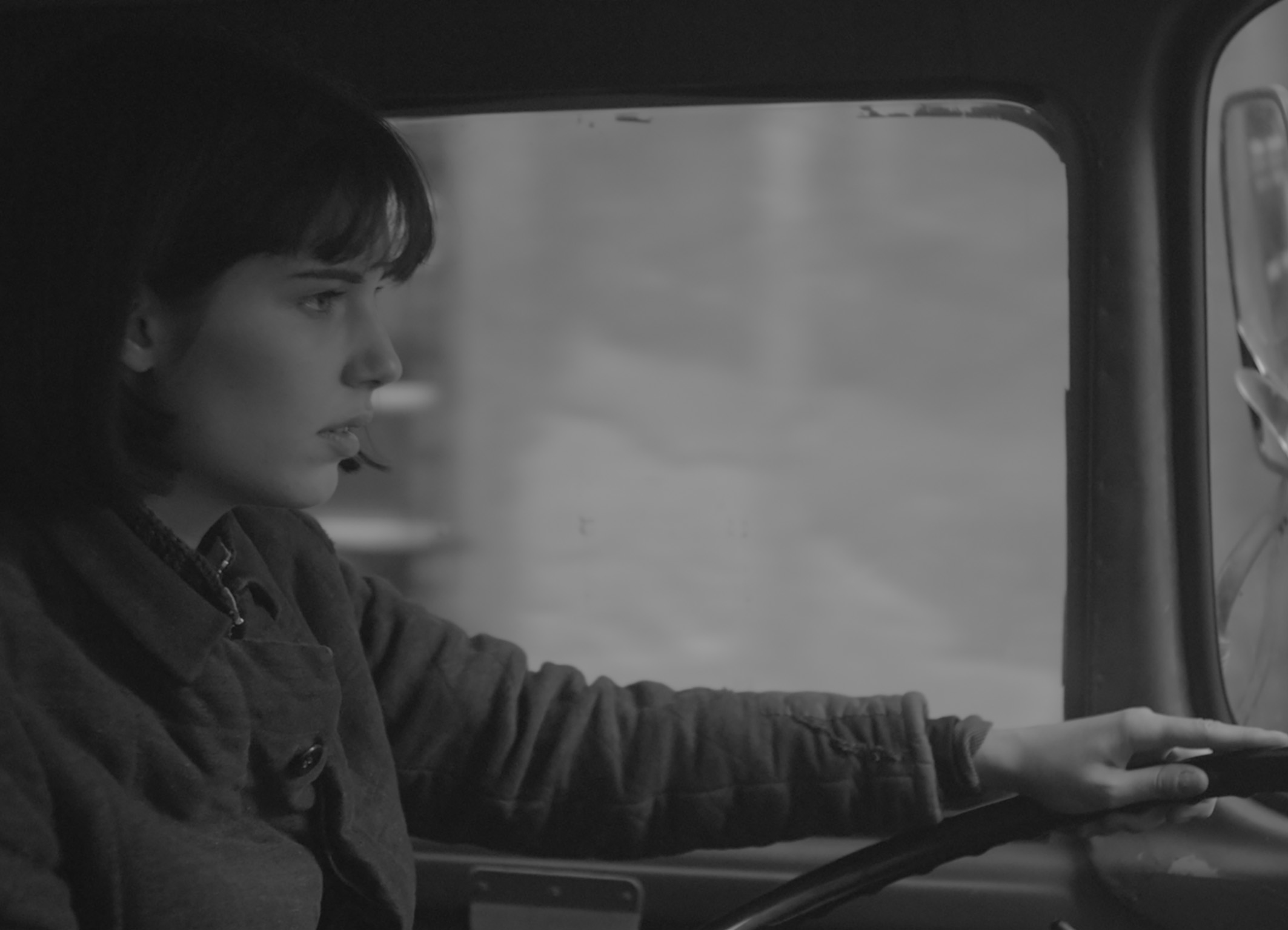
Comparably cruel and senseless murders are happening these days, too. Do you think the political situation and lack of freedom during the communist era played a key role in OH’s actions? Do you think she would do the same if she lived in the present time?
P: That’s a difficult question considering the character of OH, but on the other hand, perhaps we can see the answer in what is currently happening around us: in the constantly repeating reality when an individual aggressively turns against society. I personally think Olga would act the same way today, too, because it is not so crucial in which political situation or repression one lives; the crucial point is what kind of world one is able to build around oneself. It is impossible to say what played the crucial role; it was the set of experiences and life phases. After Olga Hepnarová failed in building a world around herself – for example at the cottage in Oleška in a relationship with a partner (another desperate attempt), she, as she stated it, created her own moral code. She simply stopped being aware of the profane communist reality and replaced it with her own. Of course one should ask why that was so and why she did it, and the film reflects on that, too. Olga thought that when she would break away from the world which she found evil and aggressive, she would gain her own freedom. But that was a mistake; it only created other personal limits and barriers. And finally the incompatibility of the two worlds led to the tragedy.
How was it to work as a duo?
T: That’s a secret. But we want to thank everybody who contributed to the film. There were many: for example, Vojta, Agáta, Marcin, Kamilla, Renda, David, Michalina, Martins, Klára, Sylwester, Marian, Markéta, Aneta, Petr, Richard, Míša, Marika, Hedvika, Rudolf, and especially Saša. Thank you all.
The film was made as a Czech-Polish-Slovak-French coproduction. Apart from financial reasons, do you see any advantages in the co-production? Or was it just a necessary evil, and you wanted to shoot a purely Czech film?
P: I love the films of Carlos Reygadas. But why? How can I understand the films of a Mexican? From the point of view of subject, film language and expression we have never thought about IOH as a Czech film. We wanted to express ourselves universally, we wanted the film to be understood and felt by people from Latin America, Europe or Asia. And then, due to the conditions in the beginning, we couldn‘t have made a solely Czech film, even if we’d wanted. It would only become a student exercise or it would never have been made. From the beginning, the screenplay was more valued abroad than at home, and it’s also a good thing when a film is discussed in three or even four countries. Each creator wants to share his subject and his film with as many viewers as possible, and so the possibility of distribution in the co-producing countries has, also from the producer’s viewpoint, greater potential. Other advantages are the possibility of benefitting from local re-sources, such as in Poland; thanks to its size, they have numerous (to us) unknown and original faces, and really great artists. One can also find great locations, and it would be quite pleasant and refreshing to have a professional international staff which cares about the result of the film.
T: I love films of František Vláčil. And he is a Czech. But he might as well be a Mexican :-)
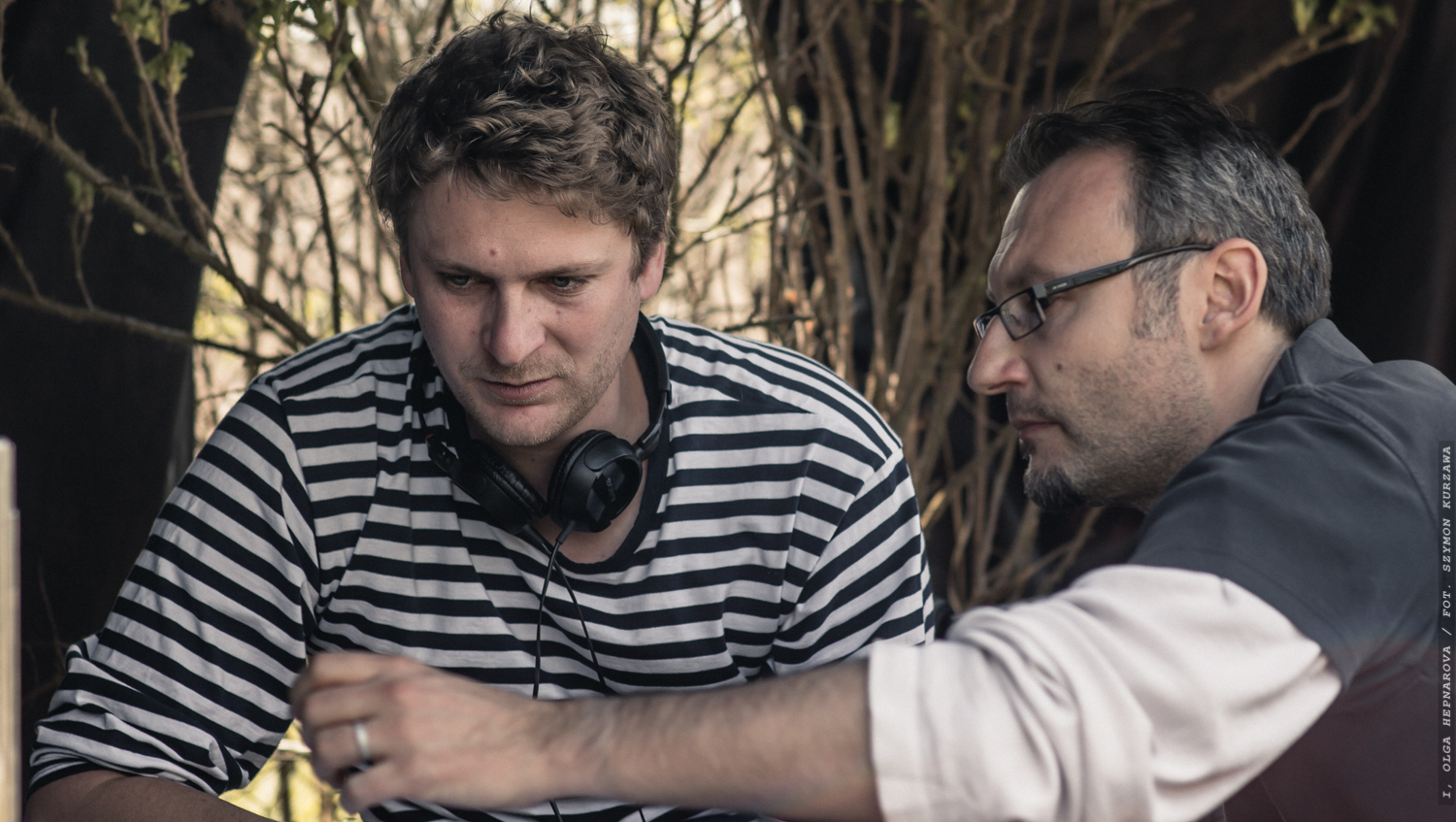 Tomáš Weinreb & Petr Kazda
Tomáš Weinreb & Petr Kazda
both graduated in documentary filmmaking from the Independent Film College in Pisek and in scriptwriting from FAMU. I, Olga Hepnarova, inspired by the book of Roman Cílek, is their debut.


